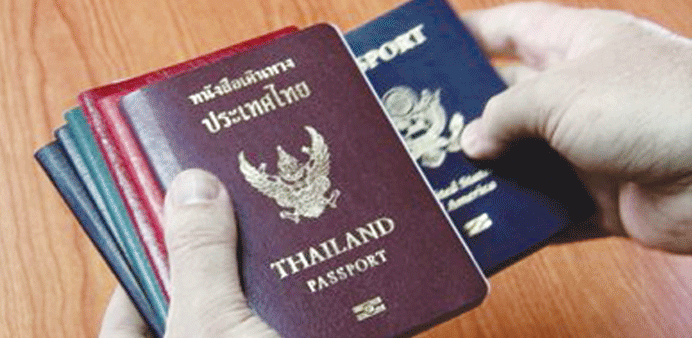By Ramesh Mathew/Staff Reporter
Even though it has been almost three years since the country promulgated a law that stopped sponsors from keeping passports of their employees in their custody, complaints are pouring in from different quarters about violations of the rule.
The other day, a group of workers of a construction firm approached one of the Asian embassies, seeking its intervention to direct their sponsor to return their passports, which his office has been keeping in its custody for close to a year now.
A few days before the group had lodged complaints in two Asian embassies and the Labour Department against the sponsor’s manager, who, they said, had not been paying their salaries for more than five months now.
Inquiries made by this newspaper in the last few days found the country’s embassies, mainly Asian missions, have been receiving complaints more often than not from aggrieved workers on the same issue.
In the latest such complaint the workers of the said Muaither-based construction firm, which was in the news a couple of days ago for defaulting on salaries of its workers for several months, said the company’s manager has not only been keeping the passpor of several workers but has also been asking others to hand over their passports to him ‘immediately’ when there is apparently no specific reason that warrants the same.
Along with this, Asian workers of a manpower agency have also come forward with similar complaints of their employers retaining their passports. They too have sought the assistance of their embassy to inform the Ministry of Interior (MoI) about the developments.
“The Law 4/2009 regulates the entry, exit and residency of the country’s foreign workers (expatriates) and it gives adequate protection to the foreigners and guarantees their right to keep passports in their possession,” said Doha legal activist and Migrant Asia regional co-ordinator Nizar Kochery.
“Violation of the law could amount to a penalty of not less than QR10,000 to the sponsor or his representative for every passports that he keeps in his illegal custody,” said the legal consultant, adding Article 52 of Law 4/2009 has provisions for imposing fine on sponsors for the violations pertaining to the employees’ passports. A passport is a personal document of an individual and there is no reason whatsoever under normal circumstances for his sponsor or employer to retain the same. Only in exceptional circumstances a sponsor has the right to keep the employee’s passport, added Kochery.
Under Article 9 of Law 4/2009, a sponsor is bound to return the passport of his employee after such mandatory formalities as stamping of visa and renewal of residence permit are over. However, complaints of some offices insisting on retaining passports of their employees have been surfacing at frequent intervals, it is understood. Sources said it is not only the passports of lower levels of workers which are retained by some offices, though inquiries found that it is mainly companies employing large workforce, as those involved in construction and manpower activities, that are violating the government rules.
There are exceptions as well. “For instance, some of the workers of our office have requested our personnel department to retain their passports as they feel it is more safe there than in their accommodations,” said an office manager of a local networking firm. There are many such workers who feel the same way as they have always felt it is safe to deposit their passports with their employers (sponsors).
Nearly two years ago a report appeared in these columns about a theft at the office of a manpower agency near the city’s Arab Bank roundabout in which more than 150 passports of the workers that it employed were stolen. Along with the passports, the safe vault in which they were kept was also lost in the theft. There were reports that some of the lost passports were later found abandoned at an Industrial Area location.
Inquiries also found that it is in violation of the country’s law that some car rental companies are keeping the passports of their clients who do not possess any credit cards. “In the event of a complaint, the person keeping passports could sometimes land in trouble for violating the country’s law,” said Kochery.

Some companies are accused by workers of retaining passports in their custody.
